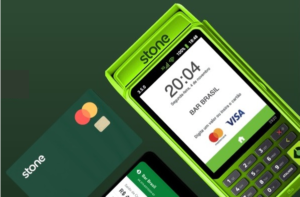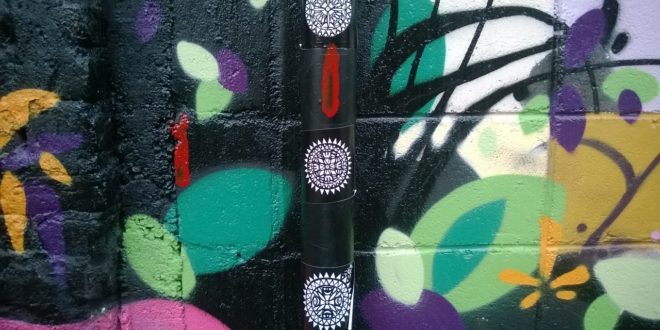By Augusto Lins
When it comes to adopting digital payments technology – the US market is a well-known laggard. In fact, as of 2019 – cash and checks still account for almost half of all SMB payments. However, COVID-19 has been a stress test for digital transformation – creating an incredible burden for small business owners who are working tirelessly to mitigate an overnight decline in brick and mortar traffic and cash transactions.

Traditional payments tech is challenging for entrepreneurs grappling with low credit and operating margins, small investment capital for business modernization, limited resources (including personnel) to manage digital payment solutions, and an overall customer affinity for cash-led payment options. However, the future of these businesses relies on their ability to go digital.
In Brazil, small businesses are essential to the health of our economy and their success is a core focus for fintech companies. In fact, micro and small enterprises (MSEs) make up 99% of total Brazilian business, provide 55% of employment, and 44% of total wages and produce 27.5% of GDP.
Brazilian entrepreneurs are no different than those in the US – they are bolstering the economy of our country and their local communities but very often do not have access to the digital tools that will enable their long-term success. Today, as we face a global pandemic that has made cashless transactions absolutely critical – the global payments industry must innovate and evolve to better support small businesses – empowering them to thrive despite economic uncertainty.
Driving adoption & crossing barriers
Many small businesses haven’t fully bought into the idea they need to be able to sell through new sales channels and that digitization can benefit every aspect of their operations. Many still rely on legacy processes including manual spreadsheets and paper checks.

There are two reasons for this – the first is that many solutions are too complex or expensive for the average entrepreneur; they don’t see the value of the investment when cash is still king. The second barrier to adoption is the time it takes to implement, onboard, and integrate the technology into daily use. To better support small businesses, payments providers must prioritize support services – this might include a more straightforward, streamlined user experience, easy onboarding, dedicated customer service and data, and analytics tools to easily track business impact.
Additionally, there’s no such thing as a ‘tech stack’ for a small business owner – payments technology won’t be adopted and implemented if it requires multiple licenses, logins, and manual orchestration. These disparate and siloed systems prevent business owners from making meaningful use of data – and represent a massive barrier to the adoption of payments tech. When payments and fintech solution providers ‘cross the aisle’ through partnerships, APIs and tech integrations, or via investment in software development, they can help enable seamless end-to-end solutions and self-service small businesses require.
Social selling & going digital
Social commerce solutions, like Facebook Shops, are on the rise – in fact, a recent study conducted by Business Insider forecasts mobile commerce will reach $284 billion, or 45% of the total US e-commerce market this year. In a post-pandemic world, there’s no doubt that number will dramatically increase.

For many small businesses – social selling represents an opportunity to tap into a broader, global customer base. Small business owners that are able to close the gaps between customer data, social advertising, and mobile commerce will be more resilient in the years ahead.
Payments providers will soon compete with social media platforms that develop or acquire their own solutions for merchants. However, the barrier to full adoption is the lack of a single system to manage every cashless transaction, regardless of where it takes place (in-store, on a laptop, over the phone, through a mobile device or via POS software). Fintech companies that can bridge the gap for small business owners (particularly if they integrate social data with existing CRM and sales figures) will help these companies gain a competitive advantage.
Financial support
The global fintech industry has a role to play in democratizing the banking and credit industries – particularly in emerging markets – by offering innovative solutions that compete with traditional financial institutions. The result is small business owners are able to access new capital quickly, to scale and grow, while alternative ‘lenders’ can offer merchant loans and digital accounts as a new revenue stream.
The greatest benefit of this new credit model is the potential to create opportunities for a new class of entrepreneurs – those that have the aptitude and vision to build a successful business, but do not have the experience or financial resources required to secure funding through traditional means. Without the confines of traditional banks – lenders can evaluate businesses based on a wider variety of criteria.
The future of financial technology is dependent on our ability to create an ecosystem that is inclusive for companies of all types and sizes. Recent regulation in Brazil, and in several other markets, is changing the competitive landscape with Open Banking, Instant Payment, and GDPL driving these changes. For example, in Brazil earlier this year, the Brazilian Central Bank announced PIX, a local instant payment system.
Small businesses are the heart and soul of the economy and have the ability to dramatically impact adoption for the global payments market. Fintech companies must do their part to ensure their mutual long-term success.

Augusto Lins is President of StoneCo, a Brazilian provider of financial technology solutions that empower merchants to conduct commerce seamlessly across multiple channels and help them grow their businesses. Headquartered in São Paulo, the company was established in 2012 and serves more than 531,000 customers in 1500 cities.
Brazilian street art photo by Tato Sievers on Pixabay








LET’S CONNECT